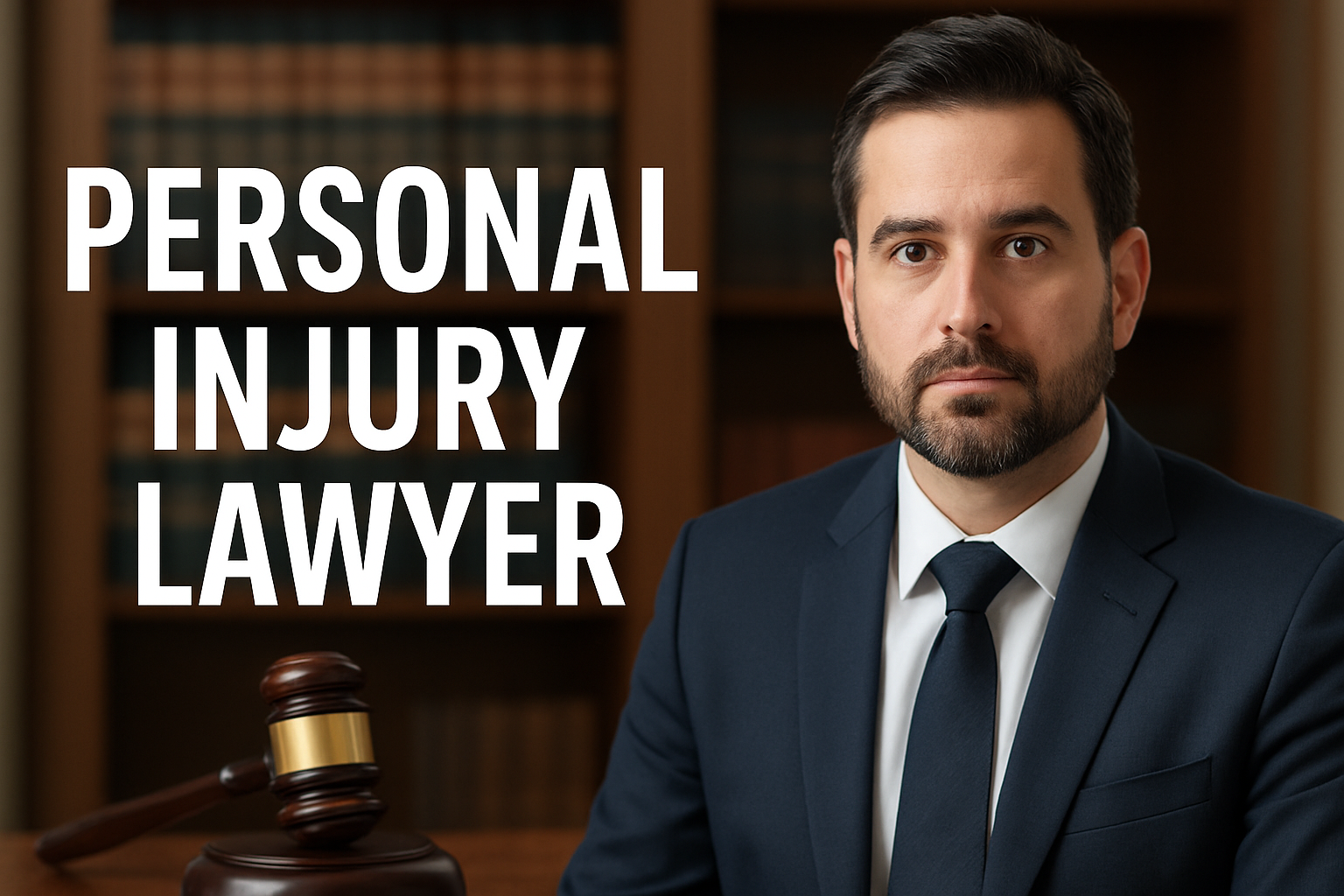Accidents happen when we least expect them, and their impact can be life-changing. Beyond the physical injuries, victims often deal with emotional trauma, financial burdens, and the frustration of navigating insurance claims. In these difficult times, a personal injury lawyer can serve as your advocate, helping you secure fair compensation and peace of mind.
This guide explains what personal injury lawyers do, why you may need one, how to choose the right attorney, and what to expect throughout the process.
Contents
What Is a Personal Injury Lawyer?
A personal injury lawyer is an attorney who specializes in representing individuals who have been physically or emotionally harmed due to another party’s negligence, carelessness, or wrongful actions. Their mission is to hold responsible parties accountable and help victims recover damages that cover medical bills, lost wages, pain and suffering, and more.
Common Types of Personal Injury Cases
Personal injury law covers a wide range of situations, including:
- Motor Vehicle Accidents – Car, motorcycle, truck, and pedestrian accidents caused by reckless driving, speeding, or DUI.
- Slip and Fall Injuries – Accidents occurring on unsafe premises, such as wet floors, broken stairs, or poor lighting.
- Medical Malpractice – Errors by doctors, nurses, or hospitals that result in harm to patients.
- Workplace Accidents – Injuries occurring on the job, often involving construction sites or unsafe conditions.
- Defective Products – Harm caused by unsafe or faulty consumer products.
- Wrongful Death – Cases where negligence results in the death of a loved one.
Each case type has its own complexities, making legal guidance essential for achieving justice.
Why Hire a Personal Injury Lawyer?
Some accident victims wonder if hiring an attorney is necessary. While minor claims may be handled alone, most personal injury cases benefit greatly from professional representation. Here’s why:
1. Knowledge of the Law
Personal injury laws differ from state to state and can be difficult to understand. A lawyer knows which laws apply, the deadlines for filing, and how to build a strong claim.
2. Strong Negotiation Skills
Insurance companies often aim to settle quickly and for the lowest possible amount. A skilled lawyer negotiates on your behalf to ensure you receive fair compensation.
3. Proper Valuation of Claims
Many victims underestimate the true cost of their injuries. An attorney considers medical expenses, rehabilitation, lost wages, future earning potential, and non-economic damages such as pain and suffering.
4. Contingency Fee Structure
Most personal injury lawyers work on a “no win, no fee” basis. This means you pay nothing upfront, and the lawyer only gets paid if you win your case.
5. Peace of Mind During Recovery
Dealing with legal paperwork and insurance adjusters can be stressful. Having an attorney allows you to focus on healing while they handle the legal side.
Steps in a Personal Injury Case
Knowing what to expect can ease anxiety. Here’s a general overview of the personal injury claim process:
- Initial Consultation – You’ll meet with your lawyer to discuss the details of your case. Most consultations are free.
- Investigation – Your lawyer gathers evidence, including medical records, police reports, photos, and witness statements.
- Demand Letter – The attorney sends a formal request to the insurance company, outlining damages and compensation sought.
- Negotiation – Lawyers negotiate with insurers to reach a fair settlement without going to trial.
- Filing a Lawsuit – If negotiations fail, your lawyer may file a lawsuit to pursue compensation in court.
- Trial (if necessary) – Most cases settle before trial, but if yours proceeds, your lawyer will represent you in front of a judge or jury.
How to Choose the Right Personal Injury Lawyer
Choosing the right attorney can make or break your case. Keep these factors in mind:
- Experience – Look for a lawyer who has handled cases similar to yours with proven results.
- Reputation – Check online reviews, client testimonials, and ratings from trusted legal directories.
- Resources – Complex cases often require expert witnesses, medical professionals, or accident reconstruction specialists. Ensure your lawyer has access to these.
- Communication Style – A good lawyer should explain things clearly, answer questions promptly, and keep you updated.
- Fee Structure – Confirm the attorney works on a contingency fee basis and clarify what percentage they charge.
Benefits of Hiring a Local Lawyer
While online searches may bring up many options, hiring a lawyer in your state or city has unique advantages:
- Familiarity with state-specific laws and filing deadlines.
- Established relationships with local judges and court staff.
- Easier communication and in-person meetings.
- Knowledge of local insurance company tactics.
Common Mistakes to Avoid After an Accident
Even with a lawyer, certain mistakes can weaken your case. Here are key things to avoid:
- Delaying medical treatment – Insurance companies may argue your injuries aren’t serious if you don’t seek immediate care.
- Speaking directly to insurers – Adjusters may try to get statements that reduce your claim value.
- Posting on social media – Photos or comments can be used against you in court.
- Accepting the first settlement offer – Quick settlements often undervalue your claim.
- Waiting too long to hire an attorney – Every state has a statute of limitations for filing personal injury claims.
FAQs About Personal Injury Lawyers
1. How much does a personal injury lawyer cost?
Most work on a contingency fee basis, typically charging 25–40% of the final settlement. You don’t pay unless they win.
2. How long does a personal injury case take?
It depends on the complexity of the case. Some settle in a few months, while others (especially those that go to trial) may take years.
3. What damages can I recover?
You may recover compensation for medical expenses, lost wages, property damage, pain and suffering, emotional distress, and in some cases, punitive damages.
4. Will my case go to court?
Most personal injury cases settle before trial. However, if the insurance company refuses a fair settlement, your lawyer may recommend taking the case to court.
5. What should I bring to my first consultation?
Bring all relevant documents, including accident reports, medical bills, insurance information, photos, and witness contact details.
Final Thoughts
Suffering an injury due to someone else’s negligence can turn your life upside down. Between physical recovery and financial stress, it’s easy to feel overwhelmed. That’s why hiring a personal injury lawyer is one of the most important steps you can take.
An experienced lawyer will fight for your rights, ensure your claim is properly valued, and negotiate with insurance companies on your behalf. With the right legal support, you can focus on healing while your attorney works to secure the compensation you deserve.

Hello, I’m Janiyah Gibbs—a retired flight crew member and former TSA officer from Alaska, USA. At PlaneCarry.com, I share expert insights on what to carry (and avoid) when flying.

